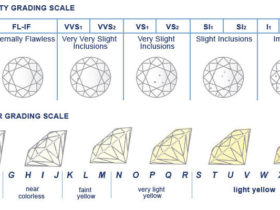Successful communication habits help you avoid unnecessary hurt and frustration in your relationships.
All important relationships take time and effort. You have to be heard and truly listen in order to make progress. With digital communication readily available, people often resort to the quickest and easiest communication method. However, elements of an effective conversation including listening, noticing body language, and building a foundation of trust. If you find that you are struggling to listen or be heard, you may need to reevaluate your communication habits. These five communication tips listed below provide detailed methods on how to better connect with your loved ones.
1. Practice Reflective Listening
How often do we hear without actually listening? We begin to give generic answers as our thoughts wander. Practicing reflective listening can help us refocus our attention in a conversation.
The objective of reflective listening is to discover and relay the message back to the speaker. The speaker can then confirm if the message was correctly received and continue to build upon that topic. Reflective listening can help you come to a shared understanding and resolve difficult conflicts.
An example may be listening to your partner say, “Work continues to pile up, and it doesn’t seem like my boss notices. I can’t continue to work under this pressure.” You may respond by saying, “It sounds like you are putting forth your best effort at work, but the workload is unmanageable. You feel that your efforts are going unnoticed further adding to the dissatisfaction.”
Some reflective listening phrases include
- “Tell me more about…”
- “I didn’t realize you felt…”
- “Thank you for sharing about…”
- “Let me see if I understand what you are saying…”
- “If I understand correctly, you feel that…”
When you practice reflective listening, you stay better engaged in the conversation. You will be more up-to-date about what’s going on in your loved one’s life. Your loved one will also continue to share vulnerable thoughts and feelings with you.
2. Make the Conversation “Safe”
Difficult conversations need thoughtful preparation. Everyone is subject to their own biases and assumptions. Approaching conversations without preconceived notions will help us find the truth and encourage productive dialogue.
Making a conversation “safe” means that both people can share their thoughts and feelings openly without being verbally attacked or needing to withdraw. In the book, Crucial Conversations, the author discusses some of the telltale signs that someone feels unsafe.
During an unsafe conversation, a loved one may resort to violence such as name-calling, belittling, controlling, speaking in absolutes, etc. An individual may also move to silence by withholding information or withdrawing from the conversation.
Start a conversation by stating the facts, and be open to new information and ideas. Being able to work through difficult conversations without resorting to violence or silence will produce quality dialogue.
3. Use Rich Communication Channels
The digital world provides several methods of communication. We can now send videos and text messages throughout the day. Cellular communication channels enable us to meet new people and build relationships when we are not physically together.
For example, online dating has allowed many singles to meet and match during pandemic lockdowns. Online daters often start with leaner communication methods such as emails and instant messages. But as the relationship progresses, the couple may try video calls, phone calls, and in-person dates to grow the relationship. These are considered rich communication channels.
The best communication methods allow you to communicate using verbal and nonverbal cues. If you are talking with a loved one face-to-face, you can tell if he or she feels comfortable by the way they are positioning themselves. Are their arms folded and knees crossed facing away from you? These nonverbal cues can guide your response and deepen the emotional connection.
Face-to-face and verbal communication also lead to fewer misunderstandings. You can make sure that your message is being understood when you take the time to communicate through rich channels.
4. Set Clear and Realistic Expectations
Realistic expectations and clear boundaries are essential to a healthy relationship. Fair expectations help both people take responsibility for their actions. For example, you may decide to split up household duties such as washing the dishes, taking out the trash, and paying the bills. You may also discuss your personal need for space to recharge or reconnect with others.
A helpful exercise is to sit down with your partner or loved one and list your values. Learn about their love languages, personal interests, and routine habits. You can then create weekly goals together to help quantify and measure your expectations.
Communicate often about expectations because they can change as your relationship progresses. With clear communication, you will discover that you are more understanding when a conflict does arise.
5. Schedule Time to Communicate
If you want your relationship to improve, you need to put in consistent effort. That means scheduling time to go on a date, hang out, talk on the phone, etc. Just waiting until the opportunity presents itself may prolong critical conversations.
One idea is to set aside time with your spouse to discuss your daily events during dinner or before your nightly routine. You can also specify one evening to spend time together each week with undivided attention. Get creative with the topics you discuss as you learn more about your loved one. Consistent and effective communication will strengthen your understanding of one another.
Give these five communication tips a try by first noticing how you communicate and what areas you could improve in. You may find that it takes time to build effective communication habits. Have patience for yourself and your loved ones. You will see noticeable improvement when you both commit to living these tips despite conflicting schedules or outside resistance. In the end, the time and effort to build these habits is worth it for those seeking a happy, healthy, and long-lasting relationship.












Leave a Reply